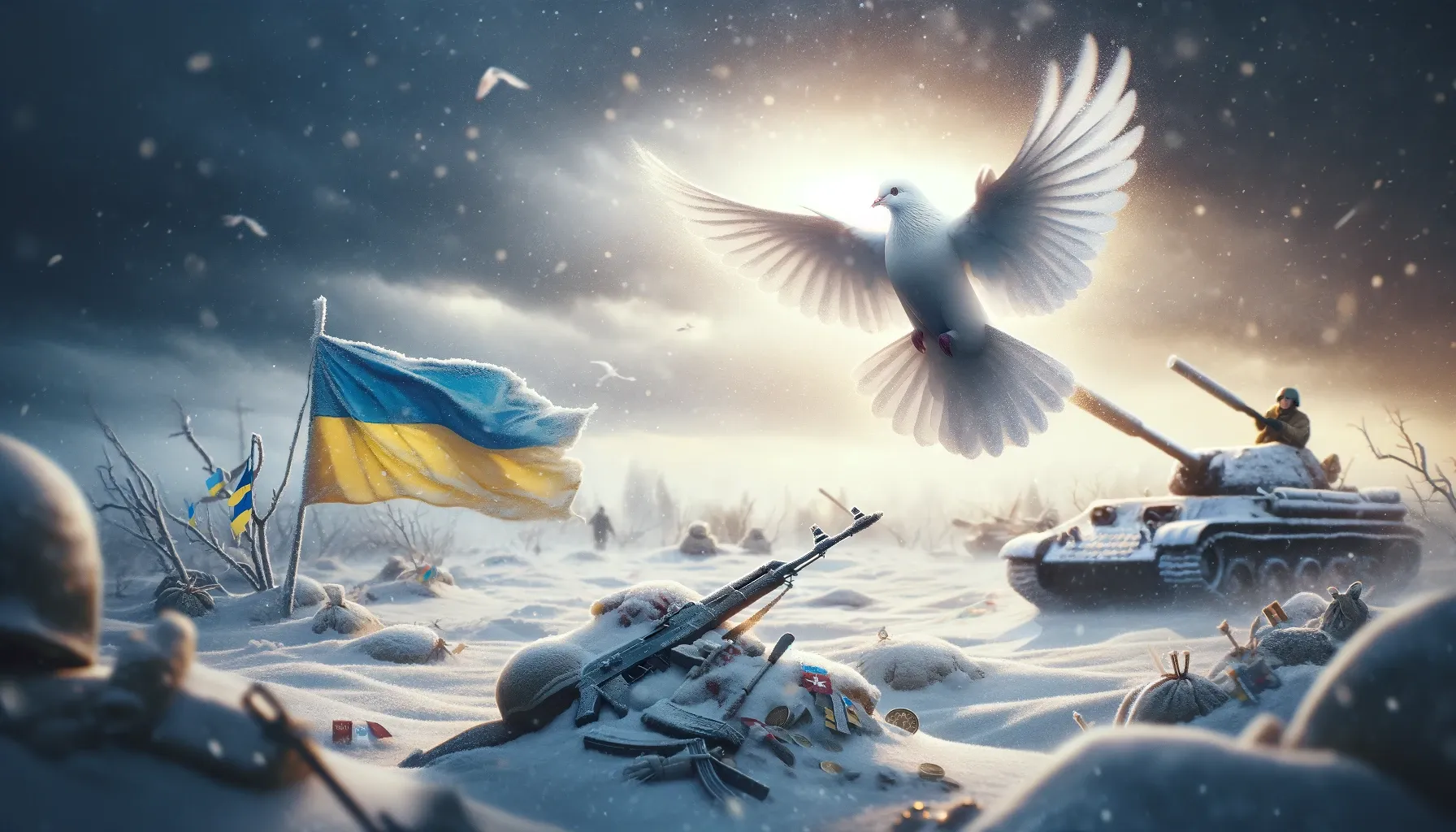Seeking Peace Amidst the Stalemate: Ukraine's Path Beyond Territorial Claims
In the shadow of the ongoing conflict, a report from The New York Times suggests Russia may be open to freezing the war in Ukraine. While skepticism lingers around this possibility, given Vladimir Putin's history of strategic deceptions, it raises a question: Could this be a genuine chance

In the shadow of the ongoing conflict, a report from The New York Times suggests Russia may be open to freezing the war in Ukraine. While skepticism lingers around this possibility, given Vladimir Putin's history of strategic deceptions, it raises a question: Could this be a genuine chance for peace, or another ploy?
Putin retaining control over a significant portion of Ukraine would be a bitter pill to swallow, not only for the proud nation but also for Ukrainian President Volodymyr Zelensky, who has valiantly portrayed a narrative of unwavering success. An armistice, although it stops the immediate bloodshed, could be politically devastating for him, seeming to reward Russia's aggression without due consequences.
Yet, on the frozen front lines stretching across Ukraine, the status quo is costing dearly in lives and resources with little change on the horizon. The Ukrainian counteroffensive, while heroic, has not significantly shifted the lines of conflict. General Valery Zaluzhny, Ukraine’s top military commander, candidly termed the situation a stalemate, suggesting that without a major technological advancement, the deadlock is unlikely to break.
As the year ends, financial aid is in jeopardy, with critical packages being delayed or questioned both in the United States and Europe. The geopolitical fault line within Ukraine threatens to sow further instability throughout Europe, potentially becoming the continent's most dangerous division for years to come.
The traditional victory, defined by the recapture of all territories lost since 2014, seems an increasingly unattainable dream. Yet, perhaps victory for Ukraine should be envisioned differently. Emerging from the war as a robust, independent state, anchored in Western alliances, could be the true win, directly countering Putin's fears of a successful, democratic neighbor.
Despite the grim forecast of a war measured by territorial control, the reality is that Ukraine has already achieved significant feats. The nation has galvanized its identity, received a formal nod from the EU to begin accession talks, and watched as neighboring Finland joined NATO, with Sweden possibly following suit. These are not marks of defeat but of a spirit unconquered.
While the conflict's course remains uncertain, and with the specter of Trump's potential return casting doubt on future support, it's critical to explore all avenues for peace. An armistice would be complex and fraught with challenges, yet it's a step that must be taken to discover if Putin's gestures towards a ceasefire are genuine.
Ending the conflict, halting Russia's advances, and focusing on rebuilding a modern Ukraine would honor those who have sacrificed everything. And it would not mean giving up on the ultimate goal of reclaiming all lost territory. The pursuit of peace, despite its complexities, remains the only path forward to a sustainable resolution.




